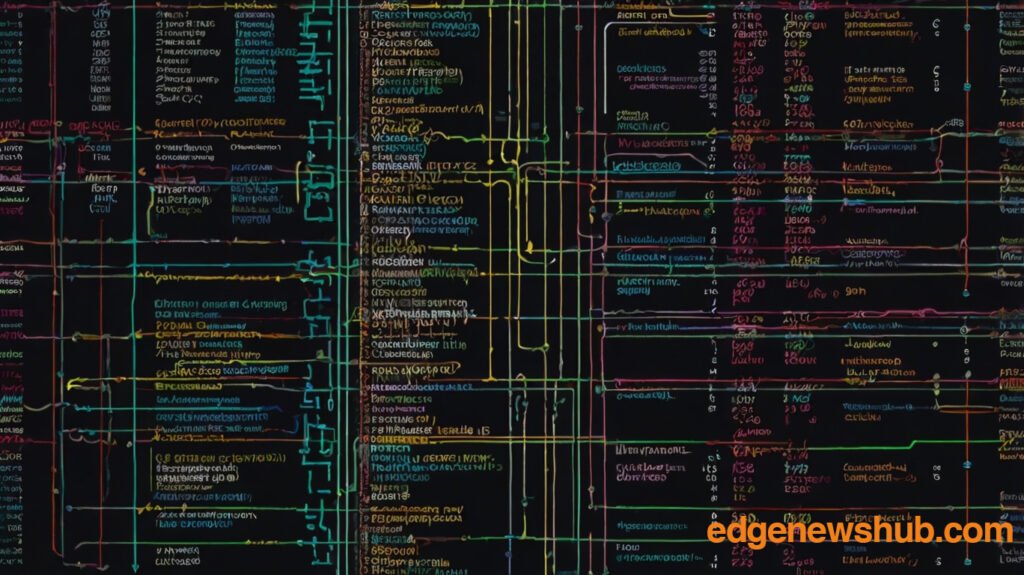If you’re curious about learning to code, exploring coding languages tailored for beginners can make all the difference. Starting with user-friendly options can ease the initial challenges, helping you understand programming fundamentals without feeling overwhelmed. With so many choices, it’s key to pick one that aligns with both your goals and skill level.
Many new learners find coding languages for beginners like Python ideal for their simplicity and versatility. Python’s readability makes it approachable, even for those with zero coding background. Plus, its applications in web development, data science, and automation give you hands-on experience in real-world scenarios.
In 2024, other best coding languages like JavaScript and Scratch are also popular for new coders. These languages offer practical skills that can set a solid foundation for further programming. Whatever you choose, the right language can make your journey enjoyable and help build your confidence as a new coder.
Python: The Gateway of Coding Languages
Why Python is Ideal for Beginners
Python has surged in popularity over the years, and for good reason. Its syntax is designed to be straightforward and readable, making it an ideal first language for newcomers. Unlike other programming languages that can overwhelm beginners with complex syntax, Python allows users to focus on learning programming concepts rather than getting bogged down by difficult-to-read code. This accessibility encourages more people to take up coding and can help build confidence quickly.
Versatility Across Domains
One of Python’s greatest strengths is its versatility. From web development and data analysis to artificial intelligence and machine learning, Python has applications across various domains. For instance, libraries like Flask and Django facilitate web development, while Pandas and NumPy are great for data manipulation. As someone who began with Python, I found it thrilling to explore different applications, allowing me to pivot my learning focus based on my interests.
Strong Community Support
Python boasts a large and active community, which is invaluable for beginners. Resources like forums, tutorials, and documentation are readily available, making it easy to seek help when stuck. Websites such as Stack Overflow and Python.org provide extensive resources for learning and troubleshooting. As a beginner, having a robust support network can dramatically improve your learning curve and provide encouragement along the way.

JavaScript: The Language of the Web
a. The Importance of JavaScript in Web Development
JavaScript is crucial for web development, enabling developers to create interactive and dynamic websites. If you’ve ever engaged with a website that updates without reloading or features animations, it’s likely powered by JavaScript. The language is a staple for front-end development, and with the advent of Node.js, it’s also used for back-end development, allowing developers to use a single language for the entire stack. This dual capability makes JavaScript an essential skill for aspiring web developers.
b. Frameworks and Libraries to Enhance Learning
JavaScript’s ecosystem includes a myriad of frameworks and libraries, such as React, Angular, and Vue.js. These tools streamline the development process, making it easier to build complex applications. As a beginner, diving into frameworks can be daunting, but they often provide built-in functionalities that simplify common tasks. For instance, learning React can help you understand component-based architecture, a valuable concept in web development.
c. Resources for Learning JavaScript
The wealth of resources available for learning JavaScript is another compelling reason to start with this language. Platforms like freeCodeCamp offer comprehensive courses that cover not only the basics but also advanced topics. Furthermore, tutorials on YouTube and coding blogs can provide various perspectives and teaching styles, allowing you to find a learning method that resonates with you.
Scratch: A Visual Introduction to coding languages
a. What is Scratch?
Scratch is a block-based visual programming language designed primarily for children and complete beginners. It allows users to create interactive stories, games, and animations by snapping together code blocks. This user-friendly interface makes it easy to understand programming concepts without the complexities of traditional coding. Scratch is often used in educational settings, providing a gentle introduction to coding principles.
b. Learning Through Creativity
One of the unique aspects of Scratch is that it encourages creativity. Users can design characters, backgrounds, and animations, allowing them to express their ideas while learning to code. This hands-on approach makes the learning process enjoyable and can lead to a greater retention of concepts. As someone who appreciates creative outlets, I found Scratch to be a delightful way to learn programming basics while also expressing my creativity.
c. Community and Collaboration
Scratch has a vibrant online community where users can share their projects, receive feedback, and collaborate with others. The platform includes a built-in sharing feature, enabling users to showcase their work and inspire one another. This collaborative environment can motivate beginners to experiment and improve their skills while learning from peers.

Java: A Classic Choice
a. The Enduring Relevance of Java
Java remains a cornerstone in the programming world, particularly for enterprise-level applications. Its platform independence, thanks to the Java Virtual Machine (JVM), means that Java applications can run on any device that has the JVM installed. This cross-platform capability has kept Java relevant for over two decades, making it a solid choice for beginners interested in a robust language with many job opportunities.
b. Object-Oriented Programming Concepts
Learning Java introduces beginners to key programming concepts such as object-oriented programming (OOP). OOP emphasizes using objects to design software applications, making it easier to manage and organize code. Concepts like inheritance, encapsulation, and polymorphism are fundamental to Java and help learners build a strong programming foundation. These principles are not just limited to Java; they are applicable in many other languages, reinforcing the value of starting with Java.
c. Educational Resources for Java
For those looking to dive into Java, there are ample resources available. Websites like Codecademy and Udemy offer beginner-friendly courses that guide you through Java’s syntax and features. Additionally, Java’s official documentation is extensive and serves as a reliable reference for learners at any stage. Engaging with these resources can provide a structured learning path, helping you build confidence as you progress.
Ruby: The Language of Web Development
a. Why Ruby is Popular Among Developers
Ruby, particularly with the Ruby on Rails framework, is another excellent choice for beginners interested in web development. Its elegant syntax and focus on simplicity make it a user-friendly option. Ruby is known for its principle of “convention over configuration,” allowing developers to focus on writing code without getting bogged down in details.
b. Rapid Development Capabilities
One of Ruby’s standout features is its ability to facilitate rapid development. This means that beginners can quickly create functional applications, which can be a huge morale boost. For instance, with Rails, developers can build web applications in a matter of days rather than weeks. This immediate gratification can help sustain motivation as you learn.
c. Supportive Community and Resources
The Ruby community is known for being welcoming and supportive. Online platforms like RubyMonk provide interactive tutorials that cater specifically to beginners. Furthermore, the community actively contributes to open-source projects, allowing learners to collaborate and gain real-world experience. This community engagement can enhance your learning journey and provide valuable connections.
C#: A Beginner’s Gateway to Game Development
a. Introduction to C# and Its Uses
C# (C Sharp) is a versatile language created by Microsoft and is particularly well-suited for game development through the Unity engine. For beginners interested in creating games, learning C# can be an exciting entry point. Its syntax is similar to other C-based languages, making it easier to transition to languages like Java or C++ later on.
b. Understanding Object-Oriented Programming in C#
C# is an object-oriented language, meaning it organizes code around objects and classes. This structure helps beginners understand core programming concepts, such as encapsulation and inheritance, while creating engaging projects. By working on game development with C#, you can apply these principles in a practical context, making the learning experience enjoyable.
c. Resources for Learning C#
For those interested in learning C#, platforms like Microsoft Learn and Unity’s official tutorials offer excellent resources tailored to beginners. Additionally, engaging in community forums can provide insights, tips, and support from experienced developers. This collaborative environment can significantly enhance your learning process as you tackle challenges along the way.
Go: The Language of the Future
a. The Rise of Go
Go, also known as Golang, has gained traction for its simplicity and efficiency. Created by Google, Go is designed for high-performance applications and is ideal for those interested in system-level programming. Its clean syntax and strong concurrency support make it a valuable language for modern software development.
b. Advantages of Learning Go
One of the main advantages of learning Go is its efficiency in handling multiple tasks simultaneously. This concurrency model allows developers to create highly performant applications, making it a great choice for building web servers and network applications. For beginners, grasping Go’s syntax and structure can lead to a solid understanding of more complex programming paradigms.
c. Learning Resources for Go
For those eager to learn Go, resources like the official Go documentation and online courses on platforms such as Coursera are excellent starting points. Engaging with the community through forums can provide support and motivation as you embark on your Go learning journey. With a growing ecosystem, the future looks bright for Go developers.
PHP: The Language of the Web
a. Understanding PHP’s Role in Web Development
PHP is a server-side scripting language that powers a significant portion of the web, including popular platforms like WordPress. For beginners interested in backend web development, PHP is a practical choice. Its syntax is easy to learn, making it accessible for those just starting their coding journey.
b. Learning PHP’s Core Concepts
PHP allows developers to interact with databases, manage user sessions, and create dynamic web pages. Learning PHP can give beginners a solid understanding of how web applications function. Additionally, as you develop PHP applications, you’ll become familiar with concepts like CRUD (Create, Read, Update, Delete), which are essential in web development.
c. Resources for Learning PHP
For those looking to dive into PHP, platforms like W3Schools and PHP.net provide excellent resources. Engaging with tutorials and documentation will help you understand PHP’s syntax and functionalities. The large PHP community can also provide support as you develop your skills.
Why Coding Languages for Beginners Are Important
Starting with beginner-friendly coding languages can make programming much less intimidating. By focusing on these languages, you gain a clearer understanding of core concepts without getting bogged down by complex syntax or advanced topics. Beginner languages build foundational skills, helping you transition smoothly into more complex languages later on.
2. Top Beginner-Friendly Coding Languages
Not all coding languages are created equal, especially for beginners. Some of the best choices include Python, JavaScript, and Ruby, each of which has its own strengths. Python is known for its readability, JavaScript is excellent for web development, and Ruby offers a friendly syntax that’s forgiving to new coders. Understanding these strengths helps you pick the language best suited to your goals.
3. Pros of Popular Coding Languages for Beginners
- Ease of Learning: Beginner-friendly languages often have straightforward syntax, making them easy to pick up.
- High Demand: Many beginner languages, like Python, are widely used in tech, meaning your skills are directly applicable in the job market.
- Community Support: Popular languages have large, active communities, which means plenty of resources, tutorials, and forums are available to help you learn.
- Broad Application: Some beginner languages, like Python, are versatile and applicable in fields from data science to web development, giving learners a broad range of career paths.
4. Cons to Consider When Choosing a Coding Language
- Limited Performance: Beginner languages are sometimes slower or less efficient than more complex options, which can impact performance.
- Abstracted Details: Some languages shield learners from lower-level programming concepts, which might make it challenging to transition to more complex languages later.
- Not Always Ideal for Advanced Projects: As you advance, beginner languages might lack certain features or optimizations needed for complex projects.
- Potential Skill Gaps: Learning simplified languages can mean you miss out on in-depth knowledge of memory management or data structures, making it harder to adapt to languages like C++ or Java in the future.
How to Choose the Right Coding Language for Your Goals
Choosing the right coding language for your goals can feel overwhelming, especially with so many options available. It’s important to consider what you want to achieve, the resources available to learn, and the long-term benefits of each language. Here’s a simple guide to help you make an informed choice.
1. Define Your Career or Project Goals
Understanding your goals is the first step in choosing the right coding language. Are you aiming for a career in web development, game development, or data analysis? Each of these areas has specific languages that are best suited to them. For example, Python is great for data science, while JavaScript is essential for web development.
2. Consider the Learning Curve
Some coding languages are easier to pick up than others. If you’re a beginner, you might want to start with languages that are known for their simplicity, like Python. On the other hand, if you’re willing to invest time in mastering something more complex, languages like C++ or Java could offer deeper insights into programming fundamentals.
3. Evaluate the Long-Term Utility
Think about the long-term potential of the coding languages you choose. Some coding languages, like Python and JavaScript, are versatile and widely used across many industries. Others, like Swift (for iOS development) or R (for statistics and data analysis), are more specialized. Consider your career path or personal projects to select a language that will serve you well in the future.
Key Factors to Consider Before Learning a Coding Language
Before you dive into learning a coding language, it’s important to weigh a few critical factors that can impact your progress and success. Choosing a language that aligns with your goals, resources, and interests will make the process smoother and more enjoyable.
1. Available Learning Resources
Some coding languages, like Python and JavaScript, have a wealth of tutorials, online courses, and forums where you can find help easily. These languages are well-supported by the programming community, making it easier to get started and troubleshoot problems. On the other hand, lesser-known languages may have fewer resources, making it harder to find guidance when you get stuck.
2. Job Market Demand
Another key factor to consider is the job market. Languages like Python, JavaScript, and Java are consistently in demand, while others may be more niche. If your goal is to land a job in the tech industry, it’s essential to research which languages are most sought-after by employers in your desired field.
3. Project Type
The type of projects you want to work on will also influence your choice of language. If you’re interested in creating websites, JavaScript is essential. For mobile apps, you might choose Swift (for iOS) or Kotlin (for Android). Meanwhile, Python is an excellent choice for data science, machine learning, and automation tasks. Think about what excites you and what skills are required to bring those projects to life. And which coding languages is more suitable for you.
Conclusion:
Choosing the right coding language is crucial for beginners, as it can significantly impact the learning curve and your overall programming journey. By understanding the various coding languages for beginners, you can select one that aligns with your interests, career goals, and the type of projects you wish to pursue. Best coding languages like Python, JavaScript, and Java offer vast resources and job opportunities, making them ideal starting points for newcomers.
Ultimately, the key to success lies in consistent practice and a focus on mastering the coding languages that best fit your objectives. No matter which language you begin with, the skills you develop will lay the foundation for future growth in the world of programming.
To learn more about this connection, read our insights on Cloud Computing Trends.
FAQs
What is the most popular coding language in 2024?
Python continues to be the top choice due to its versatility and ease of learning, making it ideal for beginners and experienced developers alike
could I learn JavaScript if I want to work in web development?
Yes! JavaScript is crucial for web development, being essential for both front-end and back-end programming, especially with the rise of frameworks like React and Node.js
Is Go a good choice for beginners?
While Go has a steeper learning curve compared to Python or JavaScript, it is still accessible for beginners, especially for those interested in server-side programming
ow can I decide which language to learn?
Consider your interests and career goals. For web development, focus on JavaScript or Ruby. If you're interested in data science, Python is the best option
What language should I learn for mobile app development?
Java is widely used for Android app development, while Swift is the preferred choice for iOS apps. Both languages have strong community support and resources


